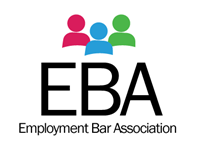
The global pandemic that started in early 2020 massively disrupted workplaces around the world. As a result, many offices turned into ghost buildings overnight and many of us learned to work remotely at home.
Now that public health guidelines allow us to physically return to work, active consideration is being given to allow many people to continue to work, at least in part, on a remote basis.
Trends & challenges
If it was true before 2020 to observe that most large companies had outgrown individual states it is now the case with remote working that many workplaces have themselves also outgrown individual countries. This creates significant legal challenges particularly from a HR and tax perspective. Even before the pandemic, the gig economy with flexible working relationships was creating a challenge for many legal systems which based important employment protections on the concept of the status of the traditional employee.
Now, not just the manner in which people work is changing, but remote and hybrid working is breaking down the traditional concept of an organisation having a ‘place of business’. Only recently, concerns have been expressed about a decrease in Irish corporate tax revenue arising from the fact that many workers working for large multinational companies headquartered in Dublin are now working from a variety of different countries creating tax issues[1]. This feature of the modern workplace also creates HR problems as there is no longer one national employment code applicable to a company’s staff.
The other side of this trend can be seen in the strong take-up of what are called “digital nomad” visas. To retain staff many companies are proactively offering flexibility as to where they can work.
The global employment law firm Littler conducts an annual survey and its most recent survey found that the majority of employers were actually driving a return to in-person working[2].
The Littler survey found that there was a growing alignment between employer and employee preferences compared to the previous year but that more employees still tended to prefer hybrid or remote working to a greater extent than that offered by their employers.
Oireachtas Report

In July, 2022 the Oireachtas Committee report on the Right to Request Remote Working produced their report[3] noted some of the benefits to remote working which came in the form of enhanced work life balance; less commuting, more time at home to pursue family activities or hobbies. On the other hand, the committee also noted that research highlighted that in the case of employees “remote working is linked with negative effects on mental health, with workers experiencing feelings of isolation, loneliness and stress”.
The key challenge for employers seeking to persuade more employees to return to the physical workplace seems to be to persuade workers that returning to work is worth it. This will be difficult if the job already feels relatively mundane. Working together makes sense when creative ideas and solutions have the prospect of being implemented. If employers press employees to unravel their at-home lifestyle but do not offer change in the workplace, then there is likely to be resistance. It is unlikely that this resistance will be overcome by offering free coffee or snacks.[4]
Legal changes
The Work Life Balance Bill, 2022
This Bill now includes the proposal to provide workers with the right to request remote work (which had previously been the subject of a separate Bill during 2022). In addition it includes to allow employees to leave for medical care purposes and to request flexible working arrangements for caring purposes. It is also proposed to include a right to request a form of domestic violence leave.
The Right to Disconnect
The Workplace Relations Commission published a Code of Practice on the Right to Disconnect last year[5]. This Code of Practice was introduced pursuant to s.20(2) of the Workplace Relations Act, 2015. The Code of Practice is designed to provide guidance and best practice to employers and employees on the right to disconnect. The right to disconnect has three main elements:-
- (i) the right of an employee not to routinely perform work outside normal working hours;
- (ii) the right to not be penalised for refusing to attend to work matters outside of normal working hours; and
- (iii) the duty to respect another person’s right to disconnect (e.g., by not routinely emailing or calling outside normal working hours).
Ongoing questions of a worker’s status (employee or contractor)
The traditional debate as to whether a worker was an employee, or a self-employed contractor has gained increased significance in the context of the flexible working relationships that are typical of the gig economy. The employment rights attaching to the status of ‘employee’ make this debate crucial for many workers. There are also significant tax, welfare, and pension implications.
The recent Court of Appeal decision that the Domino’s Pizza drivers were contractors and not employees exemplifies how fraught this area is[6]. The case was decided by a majority (Costello and Haughton JJ, Whelan J. dissenting). The majority determined that both the Tax Appeals Commissioner and the High Court had incorrectly determined that the Pizza company’s drivers were employees. The matter has now been admitted to the Supreme Court.
Challenges to employment standards presented by increased remote working
Employment legislation mandates a whole suite of standards designed to promote respect and dignity and to reduce and remove inequality and discrimination in the workplace. HR departments are often charged with ensuring that these standards permeate the culture of the workplace. Large numbers of employees working remotely behind a screen can create a challenge.
A proactive approach to tackle these challenges is very important. Previous cases dealing with unconscious bias indicate how discrimination can easily occur without any intent. A recent article by Sinead Morgan of RDJ Solicitors in Industrial Relations News[7] highlights this problem and shows how important it is for employers facing claims of unconscious bias to be able to present clear evidence both of their policies and of the application and implementation of those policies.

Conclusion
The workplace of the future is hard to predict but the global pandemic has accelerated change to a dramatic pace. The gig economy had already challenged our legal arrangements by introducing a huge variety of new flexible working arrangements. Legal rights, HR policies and tax codes all must play catch up to reflect the pace of this change. Remote working has introduced many people to the benefits of a better work-life balance but there are still huge benefits to in-person working.
The best workplaces of the future will need to persuade workers to enjoy the benefits of these collaborations by rewarding ideas and creativity so that workers will want to attend their place of work.
[1] Corporate tax-revenue concerns emerge over remote working – People who worked overseas for Irish-based firms during the pandemic are refusing to return to State, The Irish Times 31 October, 2022
[2] The Littler 2022 European Employer Survey Report, 18 October, 2022 www.littler.com/publication-press/publication/littler-european-employer-survey-report-2022
[3] The Joint Committee on Enterprise, Trade and Employment, 7 July 2022, Report on the Pre-Legislative Scrutiny of the General Scheme Right to Request Remote Work Bill 2022.
[4] Forget Free Coffee. What Matters Is if Workers Feel Returning Is Worth It, New York Times 29 October, 2022
[5] Workplace Relations Commission Code of Practice for Employers and Employees on the Right to Disconnect, March 2021
[6] Karshan (Midlands) Ltd. t/a Domino’s Pizza v The Revenue Commissioners [2022] IECA 124.
[7] IRN 37 – 13/10/2022 Unconscious Bias and Gender Pay Gap Reporting.
Discover our Specialist Bars

The EBA is an association of Senior and Junior Counsel who are members of the Bar of Ireland who specialise in employment, equality and labour law in litigation and in advising and supporting employers and employees in resolving workplace disputes.
The Association includes litigators and certified mediators who specialise in employment and workplace law.
The views expressed above are the author’s own and do not reflect the views of The Bar of Ireland.